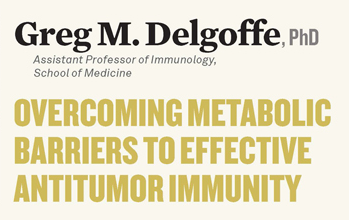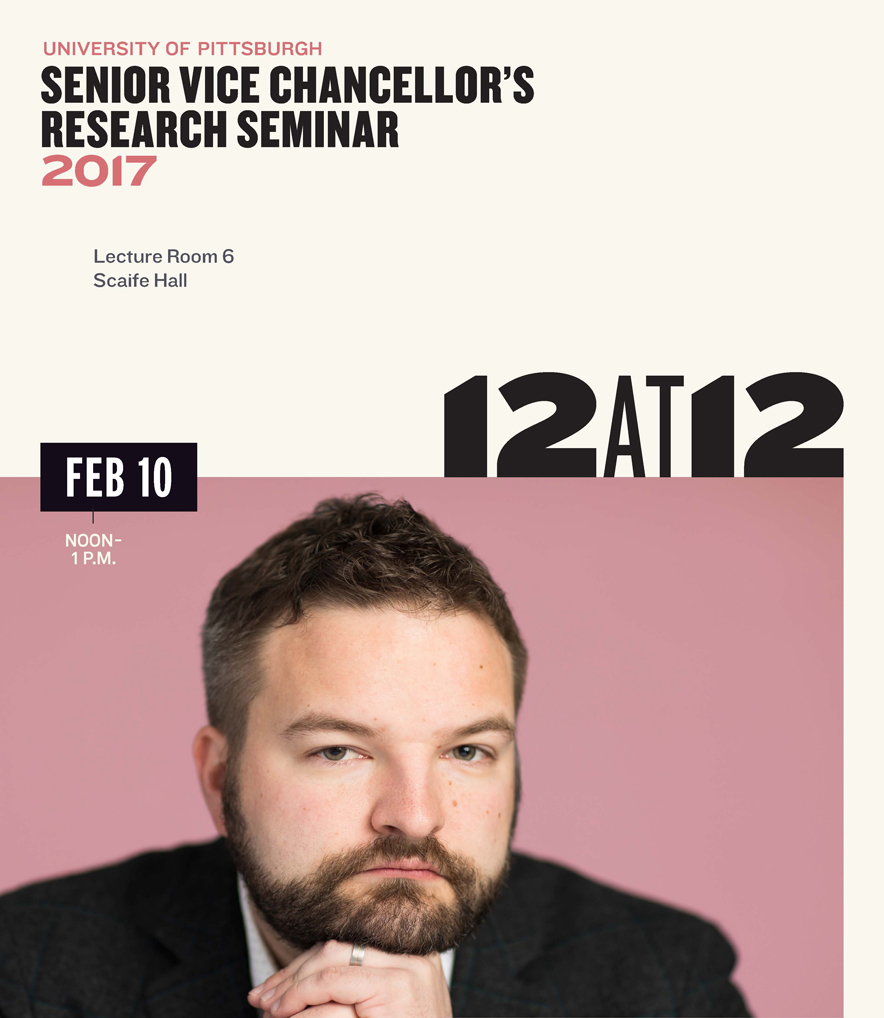
Topic Overview:
Recent advances in immunotherapy have changed the way many advanced cancers are treated, showing effective and durable responses in a subset of patients. However, despite these remarkable successes, the majority of patients treated with immunotherapy receive little to no benefit. There are many potential resistance mechanisms to immunotherapy, but one dominant mechanism is the generation of a tumor microenvironment (TME), characterized by a distinct constellation of immunosuppressive cell populations and a toxic and nutrient-poor metabolic landscape. As immune cells have high metabolic demands to carry out effector function, the nutrient-dearth conditions in the TME form a major hindrance to immunotherapy. Delgoffe’s laboratory focuses on how the metabolic makeup of the TME can hinder T-cell responses and therapeutic strategies that might give the antitumor immune response an energetic edge. Delgoffe and colleagues have recently shown that T cells infiltrate the TME at a metabolic disadvantage, characterized most prominently by a crippling loss of mitochondria, important sources of energy and synthesis. Genetically reprogramming therapeutic T cells to generate more mitochondria promotes increased antitumor immunity and clinical responses in mouse models. Delgoffe and colleagues have also shown how using the type II diabetes drug metformin can remodel the metabolism of the TME, leveling the playing field for T-cell function and immunotherapy responses. The work suggests that the metabolic makeup of the TME, driven by the tumor cell itself, serves as a major barrier to effective antitumor immunity and sheds light on potential therapeutic strategies to improve immunotherapy to bring its lifesaving benefits to additional patients with cancer.













